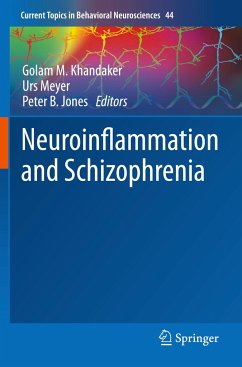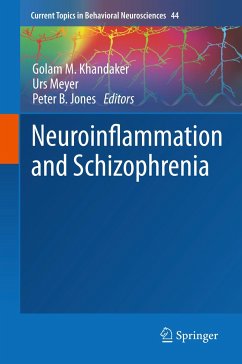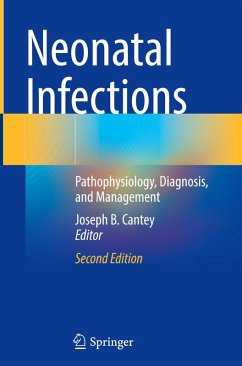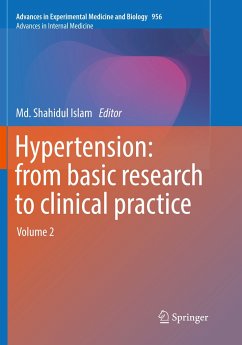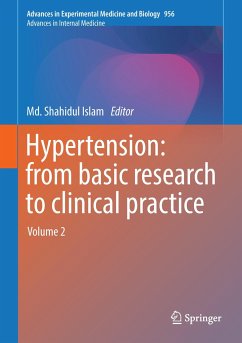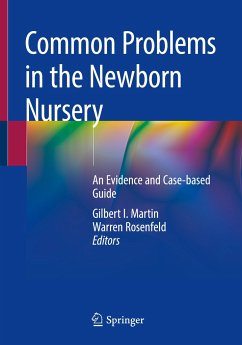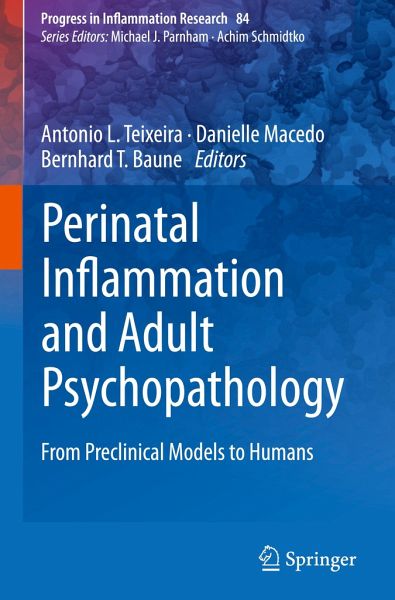
Perinatal Inflammation and Adult Psychopathology
From Preclinical Models to Humans
Herausgegeben: Teixeira, Antonio L.; Macedo, Danielle; Baune, Bernhard T.

PAYBACK Punkte
65 °P sammeln!
Perinatal psychiatry is an emerging field that investigates the role of perinatal events - for example pregnancy complications and infections - in the development of neuropsychiatric conditions, such as schizophrenia and mood disorders. Among the implicated pathological mechanisms, perinatal-induced inflammation seems to play a major role and is being considered as a potential target for therapeutic intervention.Bringing together various approaches in the field (preclinical and clinical, epidemiological, immunological and genetic methods), the book discusses the available evidence, the putativ...
Perinatal psychiatry is an emerging field that investigates the role of perinatal events - for example pregnancy complications and infections - in the development of neuropsychiatric conditions, such as schizophrenia and mood disorders. Among the implicated pathological mechanisms, perinatal-induced inflammation seems to play a major role and is being considered as a potential target for therapeutic intervention.
Bringing together various approaches in the field (preclinical and clinical, epidemiological, immunological and genetic methods), the book discusses the available evidence, the putative mechanisms and the challenges ahead.
Bringing together various approaches in the field (preclinical and clinical, epidemiological, immunological and genetic methods), the book discusses the available evidence, the putative mechanisms and the challenges ahead.




